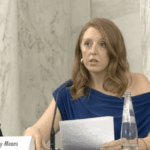Project Minerva revisited
By Hugh Gusterson | August 5, 2008
In my last column, as well as in a column for Foreign Policy, I expressed reservations about Project Minerva–a $50 million Pentagon initiative to mobilize anthropologists and other social scientists to do research in aid of the “war on terror.” I argued that such research should be sponsored by a civilian agency such as the National Science Foundation (NSF) rather than by the Pentagon. The president of the American Anthropological Association made the same suggestion in a letter to Defense Secretary Robert Gates.
At the end of July, NSF issued an announcement soliciting proposals for Minerva funding. Does this mean the Pentagon listened to Minerva’s critics? It looks that way until you read the fine print.
The National Science Foundation initiative only accounts for $8 million of Minerva’s $50 million budget. In other words, more than 80 percent of the Minerva budget is still under direct Pentagon control.”
Much criticism of the original Minerva proposal focused on the peer-review process and on a likely selection bias in the applicant pool. Regarding the peer-review process, critics were concerned that the Pentagon has little expertise in evaluating academic social science compared to NSF and other similar agencies, and that the selection process might be politicized or amateurish.
Perhaps more troubling was a likely selection bias in the applicant pool. Speaking for my own discipline, anthropology, many academic anthropologists simply will not apply for military funding. For some, this is a political stance. Others, more pragmatic, fear that research subjects in other countries may refuse to talk to researchers funded by the military. Doubtless there are also some who won’t apply for fear of incurring the opprobrium of politically correct colleagues.
At first blush, the NSF Minerva initiative looks as if it fixes these problems. In reality, it does not. NSF is being used to give Minerva a quick cosmetic cover-up.
First, the NSF initiative only accounts for $8 million of Minerva’s $50 million budget. In other words, more than 80 percent of the Minerva budget is still under direct Pentagon control.
Second, under the guise of fixing the Pentagon’s review process, the agreement between the Pentagon and NSF corrupts the integrity of the NSF review process because NSF has agreed to allow the Pentagon to place its own reviewers on the NSF selection panels alongside the reviewers chosen by NSF. In a not-for-attribution conversation, a senior official of another funding agency described NSF to me as having “sold out the integrity of scientific peer review.”
The Chronicle of Higher Education reported that Mark L. Weiss, director of the NSF’s behavioral and cognitive-sciences division, said, “There was no reason for scholars to fear that the Pentagon would disrupt or dominate the peer-review process. Any reviewers nominated by the Department of Defense will be only a small minority on the panels.”
This is a disingenuous claim. I have served on NSF review panels and can think of a number of instances where one or two panelists would have been decisive in altering the outcome of funding decisions. This is surely one reason the Pentagon insisted on adding its own people to the panels.
By placing its representatives on NSF selection panels, the Pentagon will also have access to the proposals that aren’t finally funded by NSF. Will some proposals judged substandard or overly ideological by academic peer reviewers be quietly rerouted for Pentagon funding through other channels? Will the Pentagon take ideas and information from proposals that aren’t funded and make use of them in some way? If they do, will the authors of these proposals even know what has happened, given that their ideas may circulate in the gray literature of the defense complex rather than the open literature read by academics?
Third, there is the question of selection bias. Scholars from certain disciplines (especially anthropology) and of certain political orientations (especially the Left) will tend to avoid a research program run by the military. The same research program run by a civilian agency will attract more proposals and proposals from a more diverse array of disciplinary and political perspectives. If you’re trying to understand why people in other countries hate the United States so much that they’re willing to blow themselves to pieces in the hope that they might kill an American, it matters if you’re not hearing the answer from scholars who talk to people on the street in those countries (namely anthropologists) and from scholars who are best able to tune into the concerns of disaffected foreigners.
Instead of turning Minerva into a genuine NSF initiative, the revamped Minerva is described as a joint project of NSF and the Defense Department. The call for proposals bears the Defense logo. Announcing that those funded would meet as a group with Defense officials, the call for proposals says Minerva aims “to develop [Defense’s] social and human science intellectual capital in order to enhance its ability to address future challenges.” Many of the scholars we need to hear from on Islamic radicalism and the sources of terrorism will not apply to such a program.
It’s sad that an opportunity has been squandered here. Fifty million dollars is a lot of money in the social sciences. It could’ve funded many interesting research projects on the sources of violence, terror, and war in a world that has too much of all three. Instead of disbursing this research funding through normal academic processes, the Pentagon has gone halfway, and few will be deceived. The result will be a research program that is half as effective as it might have been. The difference is the difference between a research program emblazoned with military logos and tilted toward military needs and a genuinely independent research program that would have preserved the independence of academics to create the bold ideas we need in the current crisis–not for the military but for the whole society.
When Minerva was announced, a colleague in anthropology received an e-mail from a defense contractor he had never heard of inviting him to add his name to a proposal for Minerva funding. “The contract award under this BAA [Broad Agency Announcement] in the area of $1 [million] over 3 years would be reasonable. . . . My regular communications with the customer letting this BAA have resulted in a shared understanding of a need that no other proposer to this BAA is likely to address. The result is anyone that collaborates with me has a much better chance of winning,” the e-mail read.
Translation: “Only academics are allowed to apply for Minerva funding, and anthropologists such as yourself are strongly preferred; if you put your name on my proposal, we can split the loot.” My colleague declined the invitation and promptly forwarded the e-mail to me.
It evinces a belief that people will be taken in by cosmetic changes, and meanwhile, we can carry on with business as usual in the defense world. It was appropriate that the sender was seeking to con the managers of Minerva since those managers themselves are attempting the same strategy of cosmetic makeover in their relations with the academic community.
Together, we make the world safer.
The Bulletin elevates expert voices above the noise. But as an independent nonprofit organization, our operations depend on the support of readers like you. Help us continue to deliver quality journalism that holds leaders accountable. Your support of our work at any level is important. In return, we promise our coverage will be understandable, influential, vigilant, solution-oriented, and fair-minded. Together we can make a difference.
Topics: Biosecurity, Columnists















